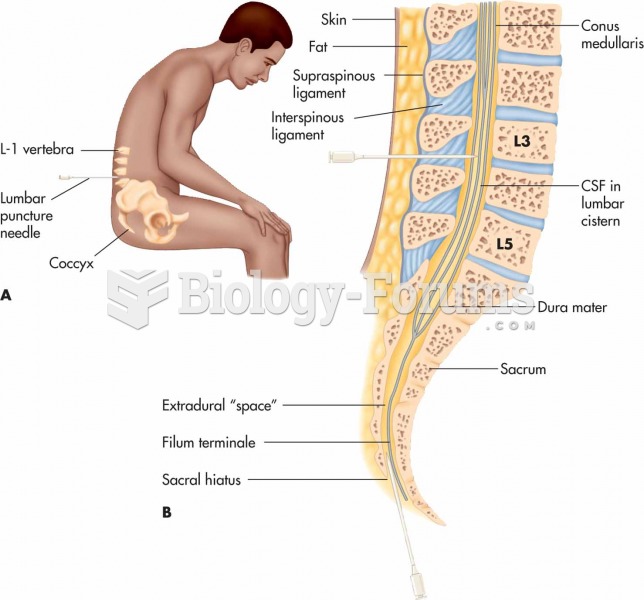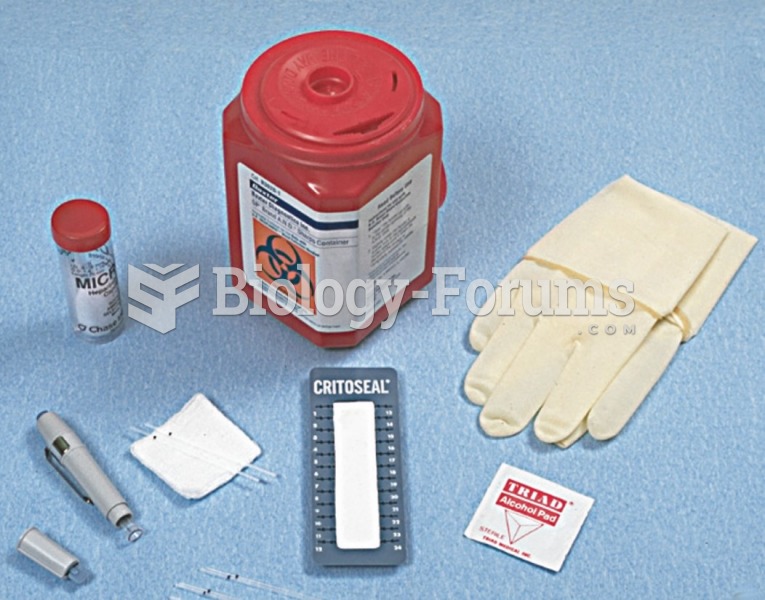This topic contains a solution. Click here to go to the answer
|
|
|
Did you know?
By definition, when a medication is administered intravenously, its bioavailability is 100%.
Did you know?
More than nineteen million Americans carry the factor V gene that causes blood clots, pulmonary embolism, and heart disease.
Did you know?
Drying your hands with a paper towel will reduce the bacterial count on your hands by 45–60%.
Did you know?
Medication errors are three times higher among children and infants than with adults.
Did you know?
About 600,000 particles of skin are shed every hour by each human. If you live to age 70 years, you have shed 105 pounds of dead skin.
 (A) Lumbar puncture, also known as spinal tap; (B) section of the vertebral column showing the spina
(A) Lumbar puncture, also known as spinal tap; (B) section of the vertebral column showing the spina
 A container with gasoline containing alcohol. Notice the separation line where the alcohol-water ...
A container with gasoline containing alcohol. Notice the separation line where the alcohol-water ...





